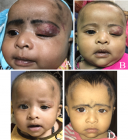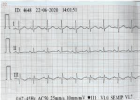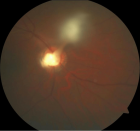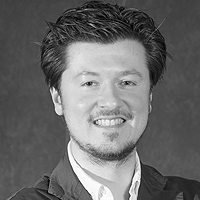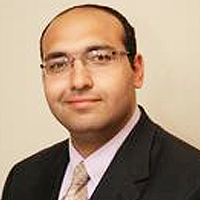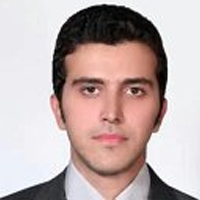About University Hospital Mohammed VI Marrakech
University Hospital Mohammed VI Marrakech
Articles by University Hospital Mohammed VI Marrakech
Rehabilitation of hearing by cochlear implantation
Published on: 24th July, 2019
OCLC Number/Unique Identifier: 8206594527
Background: Cochlear implants (CI) are nowadays a widely accepted treatment for sensorineural hearing loss SNHL.
Aim: This study aimed to describe the epidemiological characteristics and the surgical approach and to evaluate the outcomes of our experience in cochlear implantation.
Setting: Department of Otolaryngology-Head and Neck Surgery of University Hospital Mohammed VI Marrakech Morocco.
Methods: A retrospective chart review was conducted on 113 patients with severe to profound hearing loss who underwent a cochlear implantation between 2007-2018.
Results: There were 65 females and 48 males with severe to profound bilateral deafness, of whom 103 had prelingual deafness. The mean age of pediatric cochlear implantation was 5.25 years. Implantation was unilateral in all patients. The procedure was followed by regular adjustments and speech therapy. The evaluation was carried out by the same team each month during the first 6 months, then every 6 months. The average duration of follow-up was 37.54 months. All patients benefited from their implants with inter individual variability.
The good results were correlated with early implantation, significant parental investment and a steady follow-up of speech therapy.
Conclusion: Cochlear implantation has revolutionized the management of severe to profound deafness. It is a safe and effective technique when it is aimed at correctly selected populations.
Being a parent of a child with cancer: What psychosocial and family repercussions
Published on: 26th July, 2022
Cancer is a serious disease that affects deeply and painfully not only the child who has cancer but also their parents. Through this study, we describe the different aspects of the impact of pediatric cancer on parents: the psychological, social, and family impact to offer optimal care to these parents. Results: mothers represent 82.5% of the participants in our survey. More than sixty percent were of urban origin. The average time from diagnosis to parents’ assessment was 7.3 months. This announcement was made by doctors in 87.5% of cases. Conscious denial of cancer when it was announced was reported in 75% of parents. The social impact of pediatric cancer on parents was significant. The child’s illness was experienced as a very significant psychological distress; all of the parents said they had given up on important projects after their children’s illness. The psycho-emotional impact was represented by feelings of guilt in 37.5% and incapacity for illness in 30%. Forty-two percent felt tensions on the marital level with significant repercussions on the couple with a type of destabilization in 60% of cases. The parent’s relationship with the rest of the family, especially siblings, was marked by neglect and anxiety in 35% and 26% respectively.Conclusion: The discovery of pediatric cancer induces various feelings that will inevitably have an impact on the parents of the affected child. Understanding the different aspects of this impact on the parents’ psycho-social, emotional and family experiences will make it possible to offer optimal care.
Post-vaccine immunity against hepatitis B in Moroccan children
Published on: 2nd September, 2022
OCLC Number/Unique Identifier: 9617320088
Background: Hepatitis B is a major public health issue worldwide. Immunization of infants against this disease has been effective in Morocco since 1999. However, evaluation of post-vaccination response is rarely performed in our setting. The purpose of this study was to evaluate immunity against HBV in fully vaccinated children in the city of Marrakech in Morocco and to investigate the factors influencing the level of post-vaccination immunity. Methods: A descriptive cross-sectional study was conducted on fully vaccinated children who have medical and vaccination records, from three primary healthcare centers in Marrakech. Children with anti-HBs antibody levels between 10 and 100 IU/L were considered moderately immune, and those with antibody levels above 100 IU/L as highly immune, while those with antibody levels below 10 IU/L were considered non-immune. Results: Of the 123 children recruited, 114 (92.7%) had protective anti-HBs antibody titers, of which 37 (30%) were moderately immunized and 77 (62.7%) were highly immunized, and nine (7.3%) were non-immune. Age, birth weight, vaccine type, and time since the previous dose have all been significantly associated with the degree of post-vaccination immunity. Anti-HBs antibody levels were not significantly related to factors potentially linked to post-vaccination non-response, such as chronic disease, immunosuppressive medication and others.Conclusion: Our findings denote that the HBV vaccine used in The Moroccan Expanded Program on Immunization (EPI) is effective against HBV. Nevertheless, in non-responders, corrective actions such as re-vaccination and monitoring of post-vaccination anti-HBs antibody levels should be implemented.

HSPI: We're glad you're here. Please click "create a new Query" if you are a new visitor to our website and need further information from us.
If you are already a member of our network and need to keep track of any developments regarding a question you have already submitted, click "take me to my Query."






